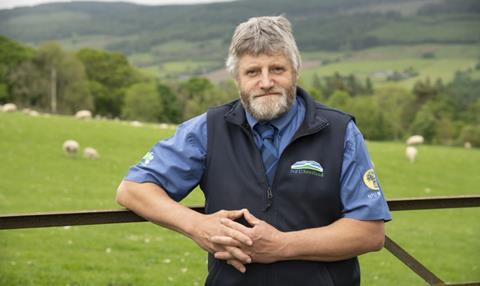NFU Scotland president Martin Kennedy has called for government and supermarkets to “wake up” to the food security crisis or be held responsible for “the biggest food inflation rises in generations.”

In his latest blog post, Kennedy wrote that the ramifications of the situation in Ukraine will have long lasting impacts on the UK’s ability to produce food.
The cost of production linked to fertiliser, fuel, energy and animal feed prices continue to soar at a rate that Kennedy said is challenging to track. He added that feed wheat and barley prices were quoted at £335 and £310 per tonne, respectively this week.
A lack of understanding
Kennedy said: “Food inflation is deemed to be something the government and the country is trying to avoid, but unless there is a significant rise in retail prices that recognises that unprecedented cost of production increase, farmers will scale back on production. Our fragile food security position will be further undermined, and food inflation will be even greater long term.
“Right now, we have government Ministers telling us that we don’t need fertiliser, there’s enough manure and slurry to compensate for the loss of artificial fertiliser. That statement shows a real lack of understanding of what is happening on the ground.”
He added: “Farmers will not produce food without seeing a return, for far too long we have been taken for granted and been rewarded poorly for our fantastic efforts to feed the country with high quality food.”
A serious impact on viability
Kennedy explained that, due to soaring costs, he was considering reducing his livestock numbers.
He said: “Multiply that across the country, add in difficulties for some sectors sourcing labour and the effect on the essential critical mass of Scottish farm output will be devastating. Any reduction in production will have a serious impact on the viability of the Scottish food processing sector, which is also under pressure with greater energy costs and labour challenges.
“The world has changed beyond belief in a very short space of time – the reasons driving that change are tragic - and food security must now be our number one priority.”
Kenney has called on all parts of the supply chain to recognise the crisis and identify how to share that burden.
This story was originally published on a previous version of the Meat Management website and so there may be some missing images and formatting issues.












